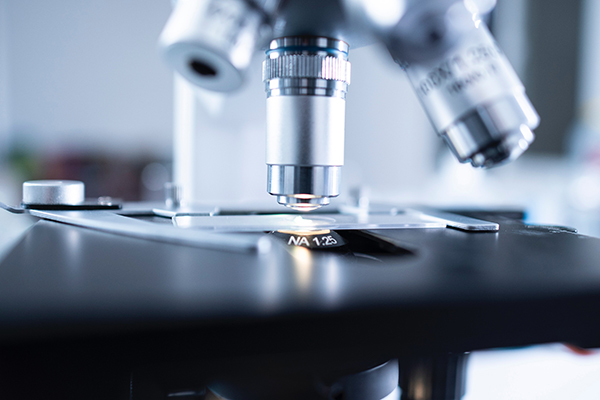COVID-19 severity: Clues in our genes?
COVID-19 severity: Clues in our genes?
Since the emergence of the COVID-19 disease pandemic, caused by SARS2-CoV-2, we have seen high transmission rates of the virus and a wide variation of disease severity in populations across the globe. Those infected can show no clinical symptoms or mild symptoms such as cough, fever and sore throat or severe symptoms such as critical respiratory failure requiring hospitalisation. As the pandemic has progressed, details have begun to emerge of certain risk factors influencing sufferers severity of symptoms such as obesity or lung conditions. A question which then was asked is, are these factors related to our individual genetics?
As early as August 2020, a research group identified that the specific genes we hold on a region of our genome which codes for our blood type was linked to COVID-19 infection. Interestingly they found that those with blood group A significantly increased infection risk, and those with blood group O had some protection from disease.1 Since then, research teams across the globe have been trying to unlock clues about COVID-19 infection from our genetics and several other areas of our genome were found to be important. These areas can broadly be related to two different aspects of our immune response. Firstly our immediate biological reaction to an invading virus, known as our innate immune response and secondly, our inflammatory response following infection. It’s clear that we have a variety of different genetic variants across these two-points which influence our disease severity.
While understanding these genetic responses may help healthcare develop new personalised treatments in the future, there is another essential factor to consider. Positive diet and lifestyle habits have been shown to have beneficial effects to our immune health including eating an anti-oxidant rich foods such as those in the Mediterranean diet, maintaining fitness and getting enough sleep.2,3
With no definite end in sight to this current health crisis, it is vital to work on optimising our immune system with the choices we make in our day to day lives.
- Zhao, J. et al. (2020) ‘Relationship between the ABO Blood Group and the COVID-19 Susceptibility’, Clinical infectious diseases : an official publication of the Infectious Diseases Society of America. Oxford University Press, p. ciaa1150. doi: 10.1093/cid/ciaa1150.
- Zabetakis, I. et al. (2020) ‘COVID-19: The Inflammation Link and the Role of Nutrition in Potential Mitigation’, Nutrients. MDPI, 12(5), p. 1466. doi: 10.3390/nu12051466.
- Besedovsky, L., Lange, T. and Haack, M. (2019) ‘The Sleep-Immune Crosstalk in Health and Disease’, Physiological reviews. American Physiological Society, 99(3), pp. 1325–1380. doi: 10.1152/physrev.00010.2018.



